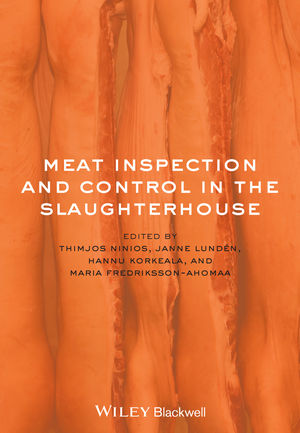Food Safety
Addressing hot topics in food safety

Food safety is truly a non-competitive issue. Many of us recall when this declaration was adopted by the boards of directors of all major food trade associations and the collaborations that underpinned and were amplified by this declaration.
One of the successes of these collaborations has been the advance in control of Shiga toxin producing E. coli by the meat industry. In retrospect, this progress was facilitated greatly by processors coming together in various ways to share key learnings, technology, testing and sampling techniques and solutions to lower the prevalence of this category of organisms in finished product. A key factor was working with regulators to facilitate a controls strategy that encouraged progress. While there is more to do, the reduction in isolations of this category of organisms from meats and the obvious public health benefits should be counted among our evolving successes.
This same concept is echoed in food safety progress now taking shape in other food industry sectors and is reflected in the regulations, guidance documents and educational materials published since passage of the Food Safety Modernization Act (FSMA). On a very broad stage, cooperative efforts are being undertaken by food safety professionals representing government, academia, food processors, retailers, foodservice, manufacturing, importers, distributors and trade associations.
While the pattern is set, we are only beginning the learning process to adapt that pattern to work in each sector and across sectors. As we continue to evolve strategies to link food safety information and expectations throughout the supply chain, the need for collaboration, for shared solutions and for worked examples of food safety plans will become even greater.
Guidance documents are intended to help industry develop food safety plans that conform to regulatory expectations and to meet specific public health objectives. Collaboration by those sectors named earlier will be needed to adapt these guidance documents for implementation by industry.
During the opening day keynote presentation at the Food Safety Summit (May 8-11, Rosemont, Ill.), a dynamic panel of speakers from industry and government will address regulatory challenges with FSMA implementation and the importance of understanding preventive controls and supplier verification.
Understanding and adopting FSMA-related guidance in the produce industry will serve as a good example of both challenges and collaborative solutions. Retailers have the unique challenge of harmonizing customer expectations and supplier capabilities within a highly competitive and price sensitive environment. At the same time, understanding the regulatory structure and how enforcement may be carried out by the Food and Drug Administration and by the Department of Justice will complete the food safety cycle.
Our panel of experts includes Kathy Gombas, formerly of the FDA; Dave Gombas, formerly of United Fresh Produce; Jeffrey Steger, U.S. Department of Justice; Shawn Stevens, Food Industry Counsel LLC; and Craig Wilson, Costco Wholesale Corp. This panel will address each of these topics and field questions in response to audience concerns. NP
To learn more about all the hot topics in food safety, plan to attend the Food Safety Summit Conference & Expo, May 8-11, 2017, in Rosemont, Ill. The Food Safety Summit provides food-safety information, intelligence and guidance to processors of all foods, including meat, poultry and seafood, and it is an official partner of The National Provisioner. For more information or to register, visit www.foodsafetysummit.com.
Looking for a reprint of this article?
From high-res PDFs to custom plaques, order your copy today!







